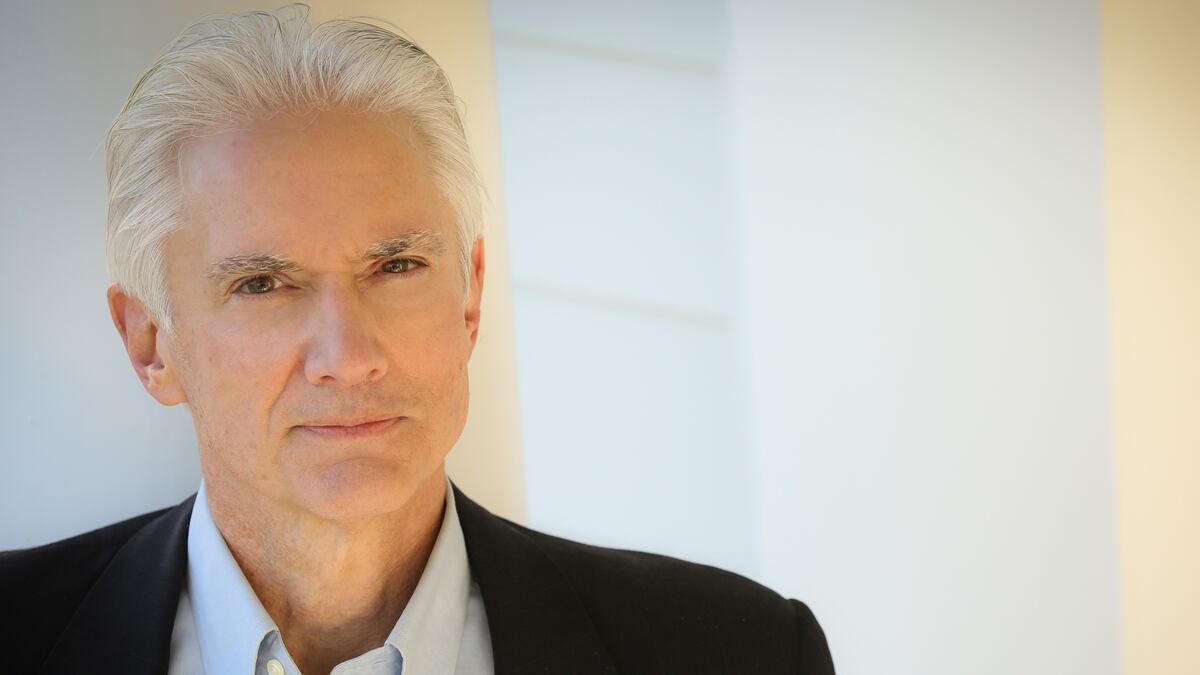Jerry Kaplan has spent his entire career thinking about the future—or simply inventing it.
Most famously, the inventor and serial entrepreneur founded a company whose technology formed the basis for the first smartphones and tablet computers,.He started the first web auction site, OnSale, five months before eBay. And long before that, Kaplan wrote the software Wendy Carlos used to make electronic music for the original Tron.
But recently, he's turned his attention to artificial intelligence. As a fellow at Stanford University teaching classes on the social and economic impact of artificial intelligence, he's published two books on the subject—the most recent of which is Artificial Intelligence: What Everyone Needs to Know.
He'll offer his insights on the subject at Portland's upcoming TechfestNW conference, a gathering of leading thinkers, startups and established companies that has showcased the the Pacific Northwest's talent and innovation for the past five years. The biggest such conference in Portland, it'll be held at the Portland Art Museum on March 23-24.
We took a moment to speak with Kaplan before his appearance at TechfestNW.
Your company invented a precursor to the smartphone—do you feel responsible at all for our current cultural attention deficit?
The positive is that people are getting better at multitasking and scanning larger volumes of information quickly for what's relevant. The downside, which I regard as very serious personally, is that people have less interest or ability to think in depth about any one subject.
It's a function of the systems we've designed, and their effects how they have interacted with human cognitive processing. I take full responsibility for this problem.
These systems in the large are a new media channel, as radio and television was before, and it's become jammed by people vying for your attention. So it's not surprising that the marketplace for ideas has become a cross between Turkish bazaar and a collection of carnival hawkers. It's difficult to pay attention to anything in this cacophony of bright lights and noise.
Your most recent books center on artificial intelligence. What tasks do you see machines as taking over?
Artificial intelligence is better understood as the continuing advance and automation than as the continuing advance of machine intelligence. There's a bad idea that's getting traction in the discussion—which is, there's no "they."
"They" are not taking over; they are not taking anything. We are building and deploying machines for our purposes. And bad design of those machines is mistaken for autonomy or independence.
Are there arenas you'd consider more beneficial—or more dangerous—for automation?
Yes—the new class of machines will make it possible to automate tasks that are relatively routine, goal oriented and for which there is a clear and objective measure of success. Unfortunately many dangerous applications also fall into this area.
Artificial intelligence paradoxically will serve both to improve and extend human life and to extinguish it prematurely—it will improve medical treatment and availability of medical care and treatment. It will also improve weapons and warfare.
Probably the one most people will think of first is driverless cars.
That's a great example of both things we just talked about. Your driverless car may rush you to the hospital if you have a heart attack and save your life, but it may run over some pedestrians on the way.
A lot of people think driverless cars will reduce accidents.
I do, absolutely—we're swapping human error for machine error. Which means that there will be less of it, but what remains will be more catastrophic.
There's an old expression, "To err is human, to really foul things up takes a computer." This is more true today than ever. Computers by their nature will make mistakes so colossal that no human would commit them or likely be capable of committing them. They operate on a time scale and magnitude that far exceeds human capabilities. They'll be done before you even notice it's happening.
What's the gist of your most recent book?
The one I most recently put out is Artificial Intelligence: What Everyone Needs to Know. It's a primer on the concepts and consequences of artificial intelligence that put frankly, people need to know. People need to prepare for their future.
Will you be first in line for a driverless car—or will you wait to see how it turns out?
I'd rather be in the car than underneath it.
TechfestNW will be held at the Portland Art Museum March 23-24, 2017. For information and tickets, go to techfestnw.com.

